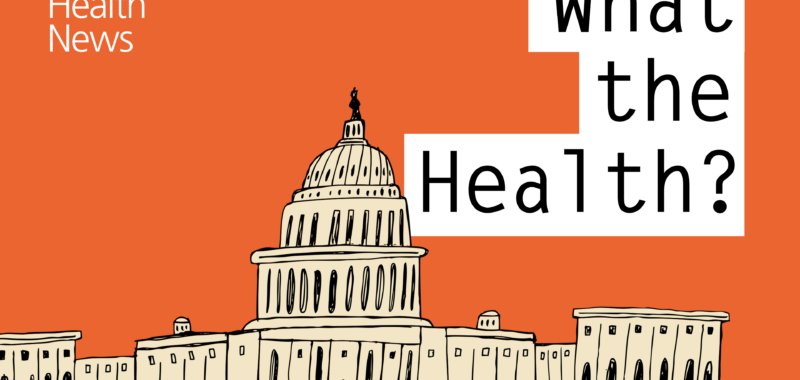The Host
Come January, Republicans will control the House of Representatives, Senate, and White House, regaining full power for the first time since 2018. That will give them significant clout to dramatically change health policy. But slim margins in Congress will leave little room for dissent.
Meanwhile, President-elect Donald Trump has vowed not to touch Medicare, though there are Medicare-related issues — including drug price negotiations and physician pay — that will soon demand attention.
This week’s panelists are Julie Rovner of KFF Health News, Anna Edney of Bloomberg News, Rachel Roubein of The Washington Post, and Lauren Weber of The Washington Post.
Among the takeaways from this week’s episode:
- Republicans will control the House and the Senate beginning next year, potentially offering Trump crucial votes in support of his nominees and agenda. However, the party will govern with only a narrow majority in both chambers, which could hamper its ability to make sweeping or controversial changes. Regardless, the GOP will steer legislative efforts, such as setting government spending levels and limits, and control committees that decide what to prioritize and oversee.
- Trump this week named several people he intends to nominate to his Cabinet. Yet many of his picks lack relevant experience or have staked out controversial policy positions — or both — raising the question: Can they clear the Senate confirmation process? Trump has suggested using recess appointments to get around that, a method that would largely bypass the Senate and limit his Cabinet secretaries’ authority.
- Meanwhile, among the issues on Robert F. Kennedy Jr.’s health agenda are some that resonate with Democrats, such as cracking down on ultra-processed foods and food dyes. Notably, those sorts of initiatives — which could tighten rules for businesses, for instance — have not been part of the traditional conservative playbook.
- And, looking ahead, there’s a lot the Trump administration could do to further erode abortion rights, and the GOP is likely to see this as a moment for trying things.
Plus, for “extra credit,” the panelists suggest health policy stories they read this week that they think you should read, too:
Julie Rovner: KFF Health News’ “In Vermont, Where Almost Everyone Has Insurance, Many Can’t Find or Afford Care,” by Phil Galewitz.
Anna Edney: The Atlantic’s “Throw Out Your Black Plastic Spatula,” by Zoë Schlanger.
Rachel Roubein: Politico’s “‘Been a Long Time Since I Felt That Way’: Sexually Transmitted Infection Numbers Provide New Hope,” by Alice Miranda Ollstein.
Lauren Weber: JAMA Network Open’s “Medical Board Discipline of Physicians for Spreading Medical Misinformation,” by Richard S. Saver.
Also mentioned in this week’s podcast:
To hear all our podcasts, click here.
And subscribe to KFF Health News’ “What the Health?” on Spotify, Apple Podcasts, Pocket Casts, or wherever you listen to podcasts.


